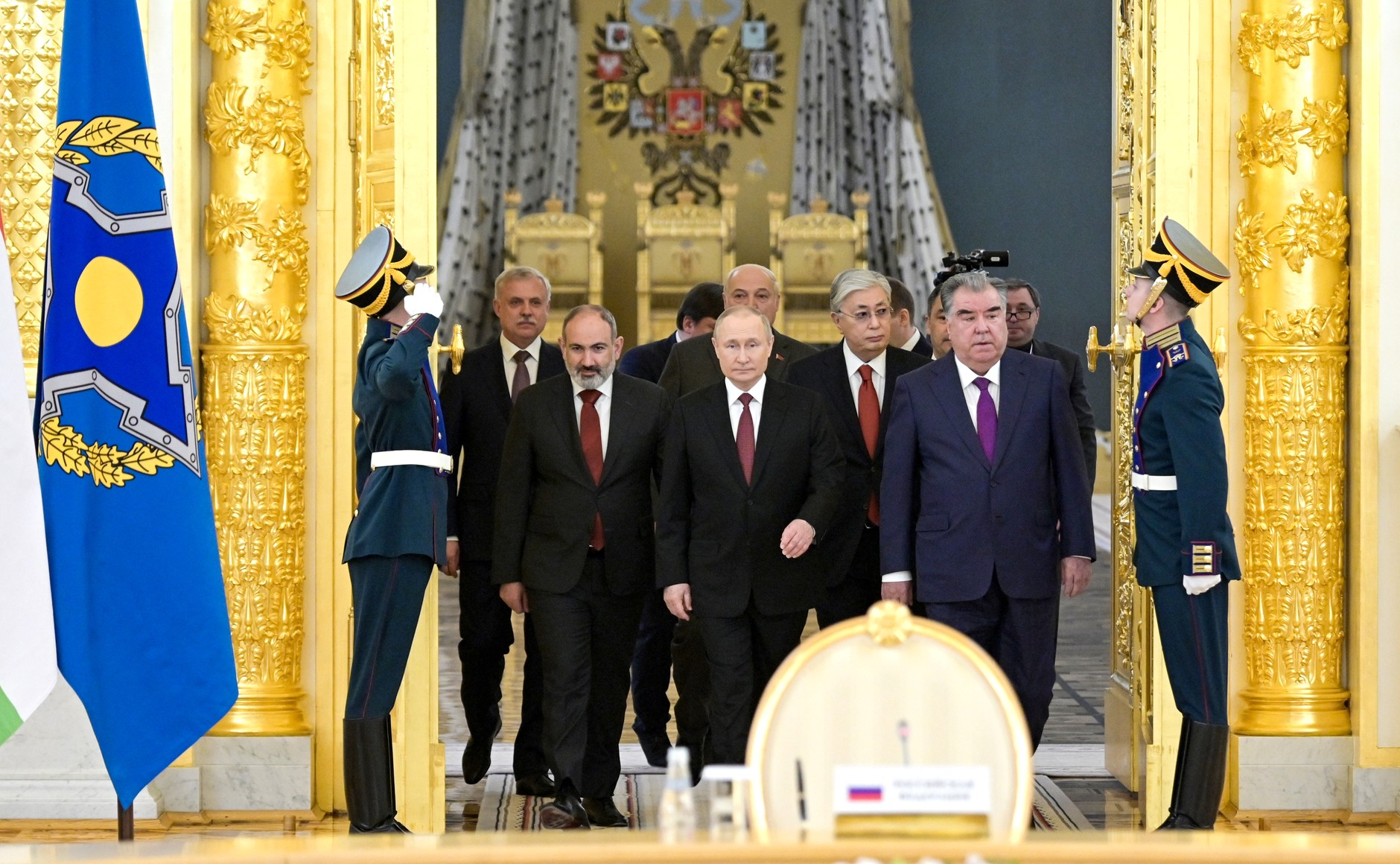CSTO Summit: Going Together, But in Different Directions
 The situation has not changed
The situation has not changed

The CSTO summit did not bring sensationalism, contrary to expectations. Formal allies have once again demonstrated the divergence of priorities of their security policy.
On May 16th, the anniversary summit of the CSTO was held in Moscow. On the eve of the event, it was speculated that Moscow would try to persuade its allies to get involved in the war in Ukraine; however, judging by the public statements and the documents adopted, these fears were initially groundless. Only Lukashenka directly referenced the Russian-Ukrainian war. Once again, we can observe the diverging interests of the participating countries:
- the leaders of Kazakhstan, Kyrgyzstan and Tajikistan are focused on the threats posed by instability in Afghanistan;
- the Prime Minister of Armenia expressed dissatisfaction with the lack of support for his country in the military confrontation with Azerbaijan and continuing arms supplies to Baku;
- Lukashenka spoke of threats from the West and Ukraine and complained about the lack of solidarity within the CSTO;
- Vladimir Putin made an unexpectedly brief speech, voicing concern about alleged biological weapons development by the United States but glossing over NATO expansion.
The final summit statement made no reference to the Russian-Ukrainian war and amounted to “favouring all good things and against all bad”. The height of surrealism was the passage about the readiness of the CSTO to “establish practical cooperation” with NATO.
The CSTO remains a typical post-Soviet association, consisting of the sum of the bilateral relations of its members with Russia rather than a coalition or community with shared interests and challenges.
However, Moscow does not demonstrate an ability to impose policy on its partners, even in terms of general statements. Although the expectations of member states and the bureaucratic apparatus of the CSTO do not lend themselves to the achievement of tangible results, one should not consider the organisation to be entirely useless for the participants. Certain benefits accrue to all parties, though not necessarily related to security issues; this state of affairs is unlikely to change soon.
Subscribe to our newsletter




Situation in Belarus
Constitutional referendum: main consequences


 Video
Video
How to count the political prisoners: are the new criteria needed?


 Video
Video
Paternalism In Decline, Belarusian Euroscepticism, And The Influence Of Russia


 Video
Video












